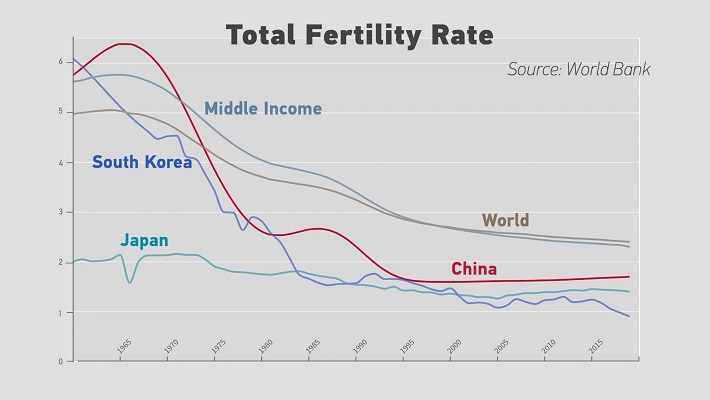
It is a well-known fact that a lot of countries are facing a population crisis and is it predicted that this would be the contributing factor to the fall of those economies in the near future. In Japan, it is seen that the majority of their population is elderly while the youth are scarce. South Korea’s fertility level is less than one. Europe too faces this crisis and is proposing measures to incentivize people to have children. China scrapped its controversial one-child policy years ago and is recommending its citizens have more children, but all of this is of no avail. This is a problem that isn’t caused by a single factor but by many.
Economic Cost
It is a no-brainer that having a child costs money. One has to be responsible for their well-being until their adult life when they become independent or married. With the rising costs of everything the eye can see, more and more people are increasingly scared of how it will impact their finances. The value of schools and colleges has shown exponential growth post World War II. It has created an arms race where education is in high demand but limited supply and this has created a situation where a parent has to spend nearly 100X on their child compared to what they spent on their education. Healthcare costs are somehow payrolled by the government in the European nations, America and most nations don’t have this benefit. It is an internet joke, that if an ambulance siren is heard in America, someone is going bankrupt. Sometimes we have to take a step back and realize that the economic prosperity a nation achieves is got by sacrificing something. Statistically, it has been noticed that the more educated a couple is, the fewer children they have.
Culture Collision
Japan is often hailed as one of the most disciplined countries right from their school-going youth to office-going salarymen. But this very culture is what shackles the Japanese working population. Japan is an extremely traditional conservative society, they are rarely rebellious and conform to norms easily. It is common for them to work for 14-16 hours a day every day and sometimes they don’t get weekends. And if their superior calls them for a drink, norms say it is rude to decline so they drink and it is socially unacceptable to stop drinking until the superior stops drinking, all this prevents them from having a personal life and this means men and women can’t seek love and meaningful relationships. Even if they are married they rarely see each other. Marriage is another factor which is dropping all across these nations, youths are reluctant to get married, particularly women.
Career Breaks
Historically, it has always been the women who were expected to make sacrifices for the sake of the family while the man was the breadwinner. Women were ostracized for being unmarried and childless when they reached young adulthood. But now, that stigma is being slowly eroded. They are prioritizing their shot at a career rather than unwillingly settling for motherhood.
This has resulted in a lot of unintended consequences when they choose motherhood. Given the competitive nature of work, if a woman were to choose pregnancy, it would mean she would miss out on one year or more on her prime career years. This would pave the way for her to be terminated or being held back from promotions. It is very hard to strike a delicate balance when you are given ultimatums. When a woman foregoes marriage to have a robust professional life, this will elicit a response where having children is seen as a liability.
There is insane pressure among all age groups in competitive Asian countries, youngsters are constantly under pressure to study to have good grades, and workers are barraged with long working hours. This prevents people from seeking love from the opposite sex, it prevents people from having meaningful relationships. The increasing costs aren’t helping anyone. Governments can put out monetary benefits for people who choose to have children, but it is of no avail. Youngsters need to be seen more than economy drivers, they need to be given the chance to breathe. Society must be reprogrammed from the ground up if they want to see real changes. Humans are social animals, companionship is important to us, they don’t have to be incentivized by the government to marry and have children. One doctor’s visit shouldn’t eat up your entire life’s savings. You shouldn’t go bankrupt if you want to go to university. Children shouldn’t be seen as money drains. The prosperity of these nations was built on the sacrifice of the future of their youths.







